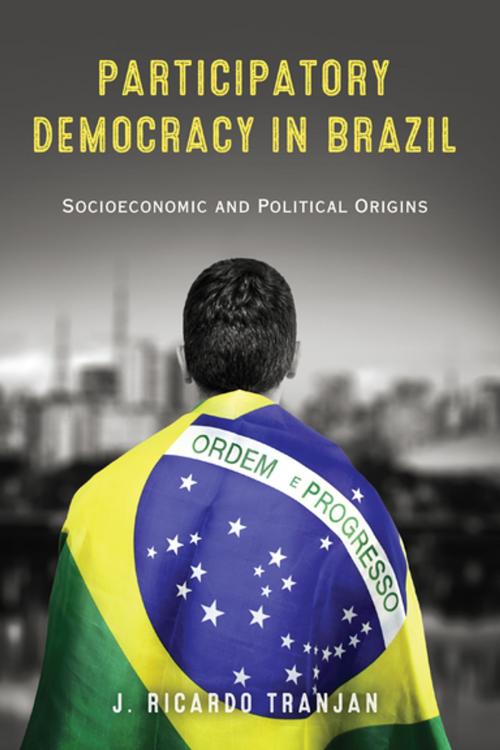Participatory Democracy in Brazil
Socioeconomic and Political Origins
Nonfiction, Social & Cultural Studies, Political Science, Government, Democracy, International| Author: | J. Ricardo Tranjan | ISBN: | 9780268093792 |
| Publisher: | University of Notre Dame Press | Publication: | December 17, 2015 |
| Imprint: | University of Notre Dame Press | Language: | English |
| Author: | J. Ricardo Tranjan |
| ISBN: | 9780268093792 |
| Publisher: | University of Notre Dame Press |
| Publication: | December 17, 2015 |
| Imprint: | University of Notre Dame Press |
| Language: | English |
The largely successful trajectory of participatory democracy in post-1988 Brazil is well documented, but much less is known about its origins in the 1970s and early 1980s. In Participatory Democracy in Brazil: Socioeconomic and Political Origins, J. Ricardo Tranjan recounts the creation of participatory democracy in Brazil. He positions the well-known Porto Alegre participatory budgeting at the end of three interrelated and partially overlapping processes: a series of incremental steps toward broader political participation taking place throughout the twentieth century; short-lived and only partially successful attempts to promote citizen participation in municipal administration in the 1970s; and setbacks restricting direct citizen participation in the 1980s. What emerges is a clearly delineated history of how socioeconomic contexts shaped Brazil’s first participatory administrations.
Tranjan first examines Brazil’s long history of institutional exclusion of certain segments of the population and controlled inclusion of others, actions that fueled nationwide movements calling for direct citizen participation in the 1960s. He then presents three case studies of municipal administrations in the late 1970s and early 1980s that foreground the impact of socioeconomic factors in the emergence, design, and outcome of participatory initiatives. The contrast of these precursory experiences with the internationally known 1990s participatory models shows how participatory ideals and practices responded to the changing institutional context of the 1980s. The final part of his analysis places developments in participatory discourses and practices in the 1980s within the context of national-level political-institutional changes; in doing so, he helps bridge the gap between the local-level participatory democracy and democratization literatures.
The largely successful trajectory of participatory democracy in post-1988 Brazil is well documented, but much less is known about its origins in the 1970s and early 1980s. In Participatory Democracy in Brazil: Socioeconomic and Political Origins, J. Ricardo Tranjan recounts the creation of participatory democracy in Brazil. He positions the well-known Porto Alegre participatory budgeting at the end of three interrelated and partially overlapping processes: a series of incremental steps toward broader political participation taking place throughout the twentieth century; short-lived and only partially successful attempts to promote citizen participation in municipal administration in the 1970s; and setbacks restricting direct citizen participation in the 1980s. What emerges is a clearly delineated history of how socioeconomic contexts shaped Brazil’s first participatory administrations.
Tranjan first examines Brazil’s long history of institutional exclusion of certain segments of the population and controlled inclusion of others, actions that fueled nationwide movements calling for direct citizen participation in the 1960s. He then presents three case studies of municipal administrations in the late 1970s and early 1980s that foreground the impact of socioeconomic factors in the emergence, design, and outcome of participatory initiatives. The contrast of these precursory experiences with the internationally known 1990s participatory models shows how participatory ideals and practices responded to the changing institutional context of the 1980s. The final part of his analysis places developments in participatory discourses and practices in the 1980s within the context of national-level political-institutional changes; in doing so, he helps bridge the gap between the local-level participatory democracy and democratization literatures.















